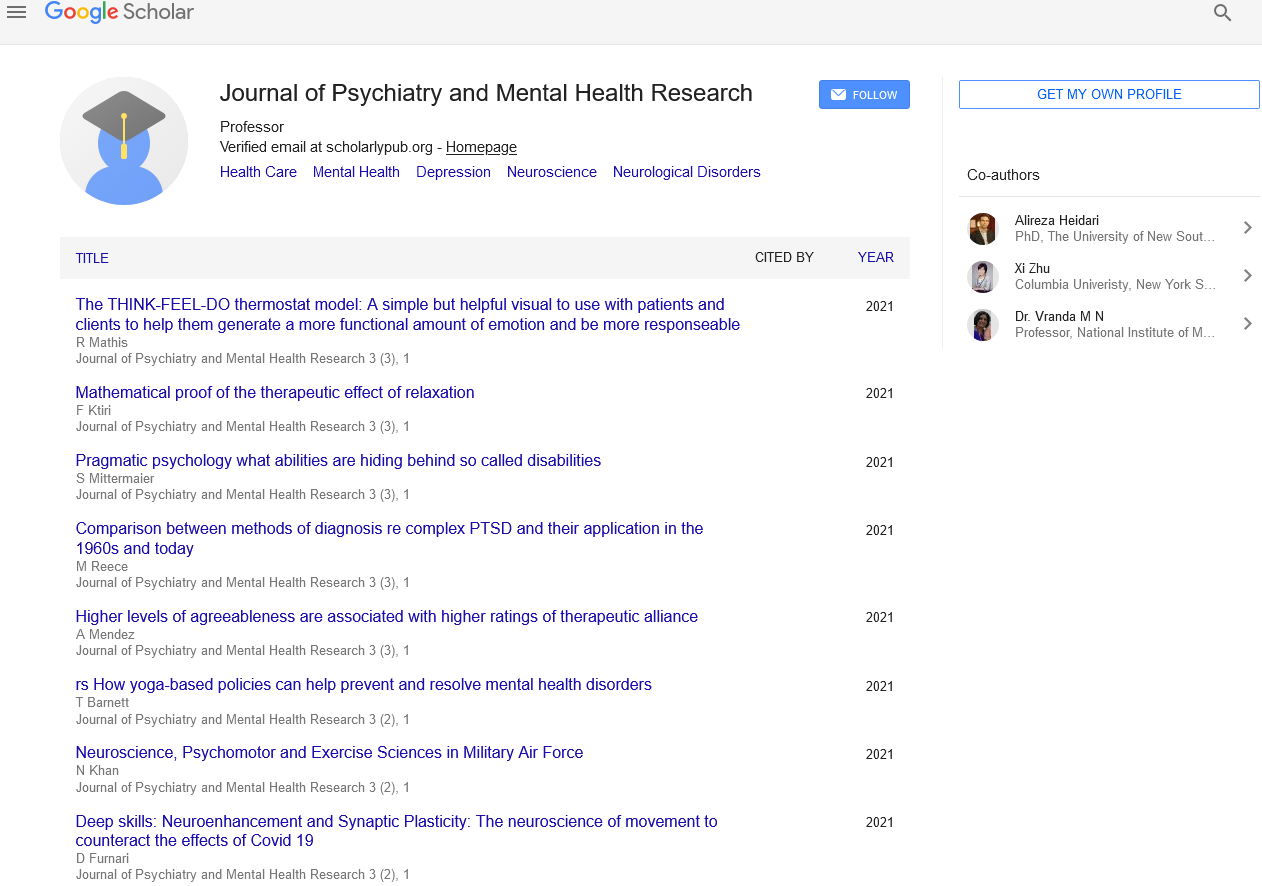Alcohol Addiction Treatment: Approaches, Strategies, and the Path to Recovery
Received: 29-Apr-2024, Manuscript No. pulpmhr-25-7387; Editor assigned: 02-Apr-2024, Pre QC No. pulpmhr-25-7387 (PQ); Accepted Date: Apr 29, 2024; Reviewed: 15-Apr-2024 QC No. pulpmhr-25-7387 (QC); Revised: 26-Apr-2024, Manuscript No. pulpmhr-25-7387 (R); Published: 30-Apr-2024
This open-access article is distributed under the terms of the Creative Commons Attribution Non-Commercial License (CC BY-NC) (http://creativecommons.org/licenses/by-nc/4.0/), which permits reuse, distribution and reproduction of the article, provided that the original work is properly cited and the reuse is restricted to noncommercial purposes. For commercial reuse, contact reprints@pulsus.com
Abstract
Alcohol addiction, or Alcohol Used Disorder (AUD), is a chronic condition that affects millions worldwide, leading to severe physical, emotional, and social consequences. Effective treatment for alcohol addiction is essential for helping individuals regain control of their lives. This article explores various treatment approaches for alcohol addiction, including detoxification, pharmacotherapy, behavioral therapies, and support groups. Additionally, the article discusses the importance of a personalized, multi-faceted treatment plan, the challenges faced in recovery, and emerging treatment trends. By providing a comprehensive overview of alcohol addiction treatment, this article highlights the critical role of a holistic approach in helping individuals achieve long-term sobriety and improve their quality of life.
Key Words
Alcohol addiction; Alcohol use disorder; Treatment; Detoxification; Pharmacotherapy; Behavioral therapy; Support groups; Recovery; Sobriety; Dual diagnosis
Introduction
Alcohol addiction, or Alcohol Used Disorder (AUD), is a widespread and serious problem that affects individuals, families, and communities across the globe. Characterized by an inability to control alcohol consumption despite negative consequences, AUD can result in physical dependence, mental health issues, and a range of social problems. While alcohol addiction is a chronic and relapsing condition, it is treatable with the right combination of therapies and support. This article examines the various treatment options available for alcohol addiction, focusing on the importance of a comprehensive, individualized approach to recovery.
Discussion
The first step in treating alcohol addiction is detoxification, which involves safely managing withdrawal symptoms as the body clears alcohol from the system. Alcohol withdrawal can be dangerous, with symptoms ranging from mild anxiety and nausea to more severe effects such as seizures and Delirium Tremens (DTs). Therefore, detoxification should always be conducted under medical supervision to ensure the individual’s safety. In some cases, medications may be prescribed to manage withdrawal symptoms and prevent complications. Detoxification is a crucial initial step in the recovery process, but it is not sufficient on its own; further treatment is needed to address the underlying aspects of addiction. Behavioral therapy is a cornerstone of alcohol addiction treatment. Cognitive-Behavioral Therapy (CBT) is particularly effective in helping individuals identify and change negative thought patterns and behaviors associated with drinking. CBT also helps individuals develop coping strategies to manage triggers and cravings. Other forms of therapy, such as contingency management, which rewards positive behaviors, and motivational interviewing, which enhances motivation for change, are also useful. Additionally, family therapy can be beneficial in repairing relationships and improving communication between the individual and their loved ones. Behavioral therapies focus on the psychological and emotional aspects of addiction, helping individuals understand the root causes of their drinking behavior and learn how to make healthier choices. Support groups play a critical role in the recovery process, providing individuals with ongoing encouragement, accountability, and a sense of community. One of the most well-known and widely used support groups is Alcoholics Anonymous (AA), which follows a 12-step program that encourages individuals to acknowledge their addiction, seek support, and make amends for past actions. AA and other peer support groups help individuals connect with others who have experienced similar struggles, offering emotional support and fostering a sense of belonging. Group therapy can also be part of a broader treatment plan, helping individuals build a strong support network and develop coping skills. Many individuals with alcohol addiction also struggle with co-occurring mental health disorders, such as depression, anxiety, or Post-Traumatic Stress Disorder (PTSD). This dual diagnosis can complicate treatment, as untreated mental health conditions can exacerbate alcohol abuse and make recovery more difficult. Therefore, it is crucial to treat both the alcohol addiction and any co-occurring mental health issues simultaneously. Integrated treatment approaches that address both aspects of the individual’s health provide a more effective path to recovery. This comprehensive care model ensures that all underlying issues contributing to alcohol addiction are addressed, improving long-term outcomes.
Challenges and Opportunities
Despite the availability of effective treatments, many individuals face barriers to recovery, including stigma, lack of access to care, and the risk of relapse. Stigma surrounding alcohol addiction can prevent individuals from seeking help and affect their ability to engage in treatment. Additionally, individuals in rural or underserved areas may have limited access to addiction specialists, treatment centers, or support groups. Relapse is also a common challenge, as alcohol addiction is a chronic condition, and individuals may experience setbacks during their recovery journey. Addressing these challenges requires a multifaceted approach that includes increasing awareness, improving access to care, and providing ongoing support throughout the recovery process.
Conclusion
Alcohol addiction is a complex and pervasive condition, but it is treatable with the right combination of medical, psychological, and social interventions. Detoxification, pharmacotherapy, behavioral therapies, and support groups are all essential components of a comprehensive treatment plan. Additionally, addressing co-occurring mental health disorders and ensuring long-term recovery support are critical for improving outcomes. While challenges such as stigma, relapse, and limited access to care persist, advances in addiction treatment continue to improve the prognosis for individuals with alcohol addiction. With the right treatment and support, individuals can overcome alcohol addiction, reclaim their lives, and maintain long-term sobriety. The path to recovery is often long and challenging, but it is possible with a holistic, personalized approach to treatment.





